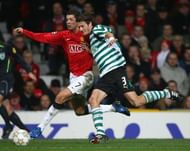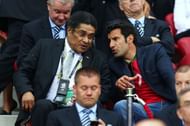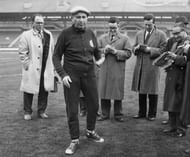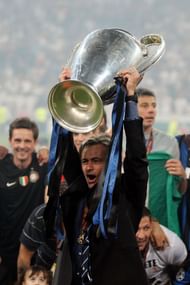The Portuguese Primeira Liga resumes this week headlined by another intriguing title race between regular challengers FC Porto and Benfica.
The long-awaited return to action begins on Wednesday at relegation candidates Portimonense as Paulo Sérgio's struggling outfit host Gil Vicente at the Estádio Municipal. but the real interest will be at Famalicão as they take on current leaders of the Primeira Liga FC Porto later that day.
Champions SL Benfica sit one point behind FC Porto on the Primeira Liga table, and they are expected to keep the pressure on their rivals when Tondela visit the Estádio da Luz on Thursday. The top scorers in the division, Bruno Lage's side will not be surrendering their title without a fight.
In the wider context of the European game, there is generally a limited interest in the Primeira Liga. This is a division that was last one by a team other than SL Benfica or FC Porto in 2001/02 when Sporting CP claimed their 18th title. However, only a two-horse race remains as we enter into the final weeks of the current campaign.

The Primeira Liga has always been a breeding ground for talent
Although the domestic league is considered niche, the Portuguese game has played a significant role in the European and world game over the course of history. The spirited Iberian nation has produced not only some of the greatest players of all-time but also some of the most successful coaches and managers who have influenced and shaped the modern game.
It was during his time at Sporting CP in the Primeira Liga that Cristiano Ronaldo came to prominence as a teenage sensation. His performance against Manchester United in a friendly to officially open the Estádio José Alvalade prompted Sir Alex Ferguson not to leave the stadium without his signature. Such was the impression made by Ronaldo against Manchester United that a record fee for a teenager was agreed.

The rest is history, and Ronaldo would emerge as one of the greatest, if not the greatest player of all time. His five Ballon d'Or awards, and counting, confirming his status in the game. But while his time in the Primeira Liga was limited, his contribution to his country cannot be underestimated, and he remains fiercely proud of his heritage.
Ronaldo replaced Luis Figo, another Portuguese Ballon d'Or winner, as the all-time appearance holder for Portugal. Figo was part of a previous generation of players to represent Portugal with distinction. He made his name with spells at Real Madrid, Barcelona and Internazionale, during a playing career that also began at Sporting CP in the Primeira Liga.
The great Eusébio was also considered as one of the best of his own generation during the 1960s, representing Benfica and scoring an incredible 317 goals in 301 appearances for As Águias. His club form reflected his international contribution, with Eusébio scoring over 40 goals for Portugal between 1961 and 1973.
The success of Ronaldo, Figo and Eusébio has played a vital role in putting Portuguese football on the world map. The reigning champions of Europe, it is fair to say that the national team has achieved more than its clubs. But FC Porto and SL Benfica have also made their mark on Europe, both teams twice becoming the champions of Europe.

Under the guidance of renowned and revolutionary Hungarian coach Béla Guttmann, Primeira Liga giants SL Benfica won the European Cup in 1960/61 and retained the trophy the following year. However, the failure of the board to reward Guttmann with a pay rise for his success resulted in the manager allegedly placing a curse on the club to prevent a repeat of such glory.
“Not in a hundred years from now will Benfica ever be European champions,” Guttmann declared. In the subsequent eight European finals reached by the club between 1963 and 2014, they have lost all eight. Not even the prayers of Eusébio at Guttmann's grave in 1990 could reverse the prophecy in one of football's most-iconic tales.
It was legendary manager Artur Jorge who first made Primeira Liga side FC Porto champions of Europe as his side defeated Bayern Munich 2-1 in the 1986/87 final in Vienna. A nomadic career of club and international management followed for the former striker, who had made his name as a player with rivals SL Benfica before moving into coaching.
But FC Porto, like SL Benfica with Guttmann, would also have their own revolutionary manager to deliver success. Having already claimed the UEFA Cup in 2002/03, José Mourinho went one better the following season by delivering with Champions League trophy to the Estádio do Dragão with a convincing 3-0 win over Monaco.

The success brought Mourinho to the attention of the football world, and he departed from the Primeira Liga for Chelsea that summer. There, he labelled himself as 'a special one' having been chosen by owner Roman Abramovich as the man to lead his financial revolution of the English game. Mourinho delivered domestically at Stamford Bridge, and would later repeat his Champions League success with Internazionale in 2009/10.
Mourinho established a path that was followed by André Villas-Boas, with the young coach leading FC Porto to Primeira Liga and UEFA Europa League success in 2010/11. Like his fellow countryman, he would also swap the Primeira Liga and FC Porto for Chelsea having proved his worth. It is notable how Villas-Boas was also influenced by his contact with Sir Bobby Robson in his formative years, just as Mourinho had been before him.

As one of the first European leagues to return to action, the Primeira Liga will enjoy unparalleled attention from the rest of Europe, with more of their games shown in more countries than ever before. A new and curious audience will no doubt embrace the opportunity to enjoy live action as the 'new normal' begins to shape the game around the world.
There are many more stories from the history of the Portuguese game that could be told. And many more that will be told in future years as the next generation emerges from a nation steeped in football tradition. It is important to know the past in order to appreciate the present.
While the standard of football in the Primeira Liga may not compare to Europe's leading divisions, it is important to appreciate the impact that Portuguese football has had on the history of the game. For FC Porto and SL Benfica think Mourinho and Guttmann respectively, for Sporting CP, remember Ronaldo and Figo.
The next big thing may already be forging his career in the domestic Portuguese game.
